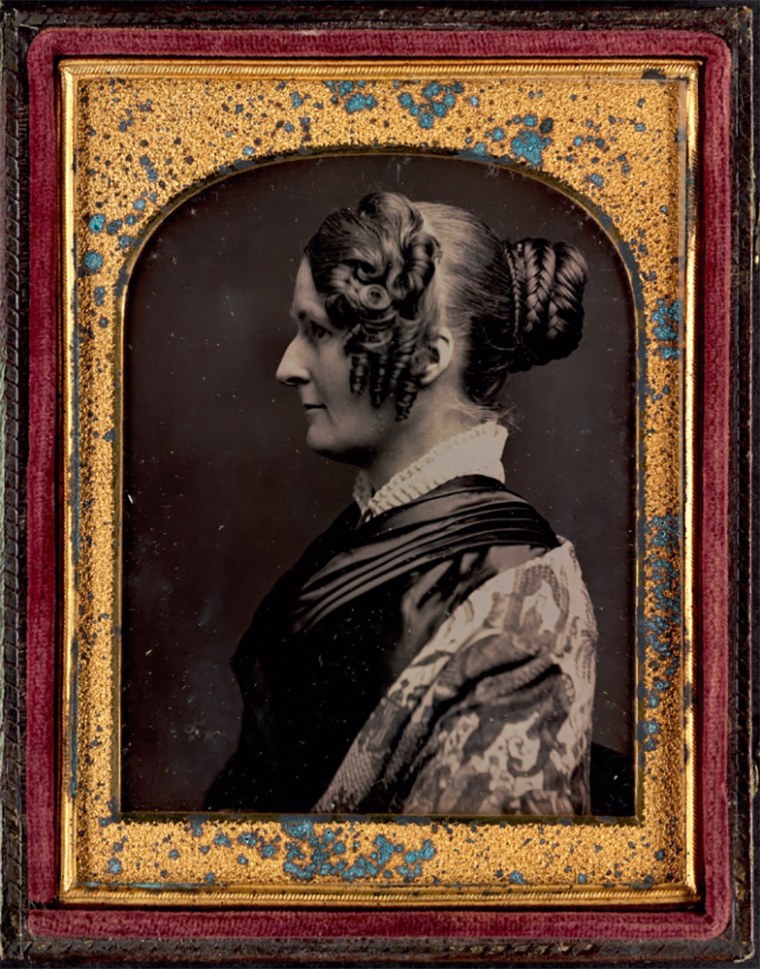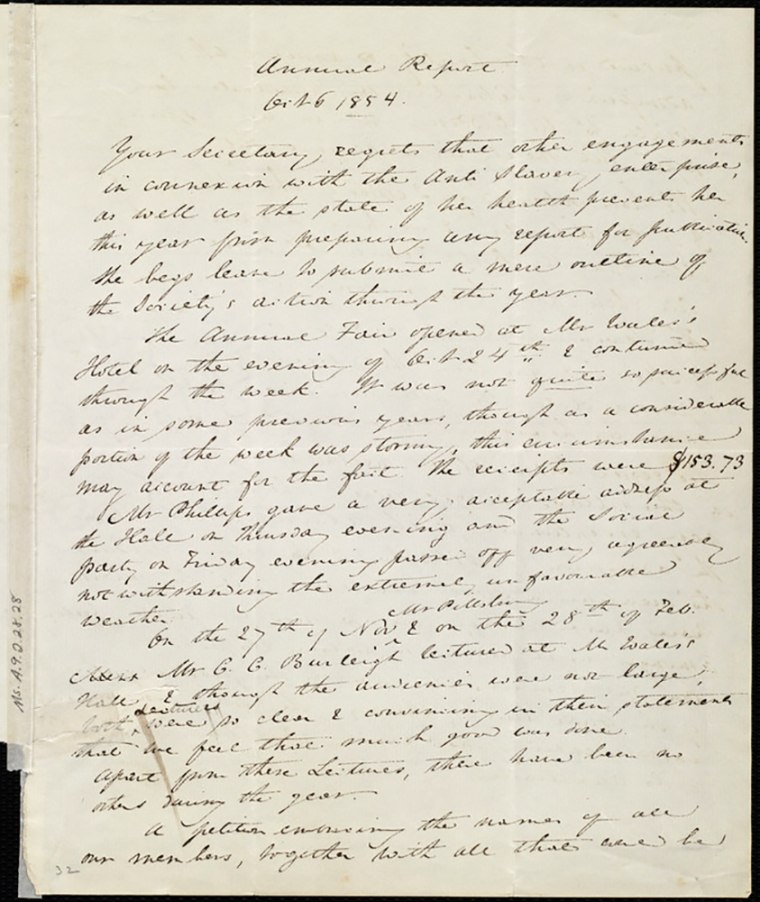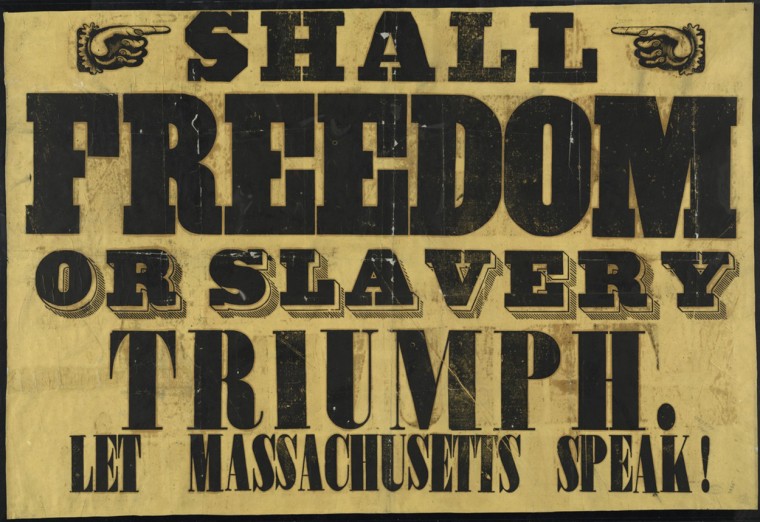Throughout the Civil War and the years leading up to it, Massachusetts was home to abolitionists William Lloyd Garrison, Samuel May, the Weston sisters and many others. The Boston Public Library is now recruiting volunteers to help preserve their stories for historians to study in the future.
The library recently unveiled a new site that allows volunteers to transcribe 19th century letters by abolitionists, one line at a time. The documents are part of the library’s extensive collection of abolitionist records.
“The Anti-Slavery Collection is one of the most significant holdings of the Boston Public Library’s Rare Books Department, and this crowdsourcing transcription collaboration project with Zooniverse enables a level of engagement with these manuscripts not possible before,” Boston Public Library President David Leonard said in a statement to NBC News.

Last spring, the digitization of 15,000 pieces of correspondence and other materials in the library’s abolitionist collection was completed, a project that took eight years and was funded by an anonymous donor.
Because the documents that make up the Anti-Slavery Collection are handwritten, they are not searchable in the library’s extensive database. That’s where the work of the transcription volunteers come in. “This project, itself an educational journey, makes the materials more accessible for everyone and sheds light on the abolitionist movement from the unique perspectives of those who lived through it,” Leonard said.
I want students to know, that history isn't about memorizing names and dates. It's about investigating what happened, and critically evaluating the interpretations that others have proposed."
The Boston Public Library noted that volunteers are from regions as diverse as the United Kingdom and Australia. Among the American volunteers working on the project, a library official shared that several decided to participate because their ancestors had been involved in the abolitionist movement.
In addition to the adults who decided to volunteer with the project, transcription assignments have been particularly popular with history teachers across the United States, who want introduce their students to the real people who created history.
“I want students to know, that history isn't about memorizing names and dates. It's about investigating what happened, and critically evaluating the interpretations that others have proposed,” Lisa Gilbert, an eighth grade social studies teacher at the Thomas Jefferson School in St. Louis, said. “To help build that understanding, recently we've been talking about some of the specialized skills historians need in order to work with archival sources.”

Gilbert noted that her students were also struck by the fact that their transcriptions will be used by historians and authors in their research. She added that participating in projects like the Anti-Slavery Project transcription also helped humanize both history and the academics that write it.
“One of the things I want my middle school students to know is that historians aren't the stuffy stereotypes we so often see represented in movies and books,” Gilbert said. “Ultimately, projects like these can help us make history about developing empathy for people in the past while discerning who we want to be in the present.”
